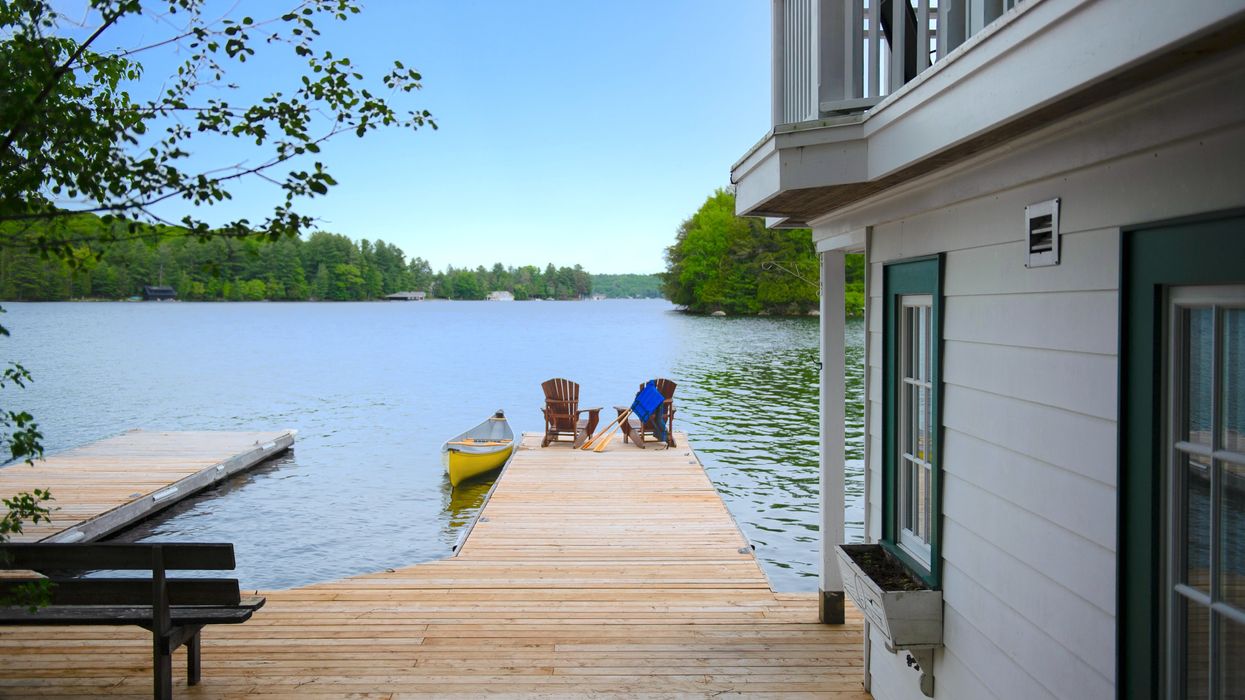Muskoka cottage owners hoping to rent out their properties to bring in some extra income could soon face a restrictive licensing requirement.
In an attempt to rein in unruly short-term renters, the Township of Muskoka Lakes has proposed a new bylaw that would require cottage owners engaging in short-term rentals — those that last for 28 days or less — to apply for a licence.
The bylaw, proposed in response to complaints of loud guests and large, disruptive parties renting out cottages for a night or two, does not appear to be welcomed by many Muskoka residents, who fear the township has swung too far in the opposite direction with overly restrictive regulations that don't address the root of the problem.
Under the proposed bylaw, owners would be required to pay a $1,000 application fee and a $500 inspection fee in order to obtain a licence. They would then be subject to the following conditions:
- The property can only be rented out for 50% of the days in the summer months and 50% of the rest of the year;
- From Victoria Day to Labour Day, the minimum length of stay must be seven consecutive nights. For the rest of the year, the minimum stay must be three consecutive nights;
- And a person must be available to respond to concerns with the rental within one hour.
During a Township of Muskoka Lakes Special Planning Committee Meeting, held February 13, one resident likened the proposed limitation on the number of days in a year a property can be rented out to "taking a sledgehammer to kill a mosquito."
"There's really no issue about parties if you're renting by the week or longer," he added.
Others took issue with the week-long requirement, saying that many people either can't afford to rent a property for an entire week, or can't take that much time off of work, which not only shrinks the renter pool but prevents those with less money from enjoying what Muskoka has to offer.
"Full-week bookings are incompatible with the work schedules of most tourists, especially when coordinating a group," said Cheryl MacMillan, who uses short-term renting as a way to help cover the costs of her Muskoka property.
Another meeting attendee, David Van de Pol, added that the minimum stay requirement is "basically telling the world that Muskoka Lakes isn't for you."
"If you can't afford seven days or more... then you're not welcome," he emphasized.
Maryrose Coleman, Co-founder of Muskoka District Rentals, says she's long been an advocate of licensing for short-term rentals, but says the way the township is going about it isn't ideal.
"The idea is by licensing, you can ensure that there's someone available if there is an issue," Coleman tells STOREYS. "You can also then ensure that the property, if it's got a septic tank, for example, that's rated for four bedrooms [and the property] is being advertised that it can sleep 20 people... that could be an issue from an environmental perspective, for the township."
The proposed licensing fee, however, is much too high, Coleman says, arguing that it's punitive for individual owners who have to rent out their cottages in order to afford them.
"There are people out there — maybe it's siblings that inherited [the property] from their parents — they rent it for a few weeks or more in order to pay the taxes, which are very high in Muskoka," Coleman said. "So to then tack on a really high licensing fee, I thought it was unreasonable. I think [similar fees] are only $175 in some municipalities."
In addition to a more nominal fee, Coleman suggests a municipal tax, charged to the renter. It's not unheard of in cottage country, with Gravenhurst implementing a 4% municipal tax last year on all hotels, motels, bed & breakfasts, licensed short-term rentals, and roofed accommodation offering less than 30-day continuous stays.
Coleman, along with many others at the February 13 meeting, highlights a potentially devastating economic impact that limiting rentals could have on Muskoka. Renters not only spend money on rentals, but bring much-needed business to local outfits as well.
"They rent boats, maybe they go on a tour, they take the Segwun, they go to the local farm, they go to the local grocery store to buy their groceries — there's all kinds of things that they'll do," Coleman said.
Interestingly, one point that came up repeatedly was that the cause of disruptive noise is often not even renters — it's the owners using their own properties. And in other cases, renters can just be completely unaware of how easily sound travels (and amplifies) across a lake.
"Most of the time, it's not a deliberate situation — often they just don't know that they're causing a disturbance to anyone and the minute they hear from us, everything quiets down," Coleman said. "You might be just having a fun time outside around the campfire, roasting marshmallows and laughing and relaxing, right? But if someone's trying to sleep across the way, it's loud and you don't realize it."
Another issue that reared its head is that under existing bylaws, there's simply a lack of enforcement — noise limits already exist but are inadequately enforced by bylaw officers, who don't work on weekends.
"What we need in Muskoka Lakes are more bylaw enforcement officers who work all through the weekends to enforce the bylaws that already exist, and to do so equitably among all properties," MacMillan said.
The Township of Muskoka Lakes will now review all comments made during the public meeting, and will make any "necessary revisions" before considering the bylaw for approval.





















